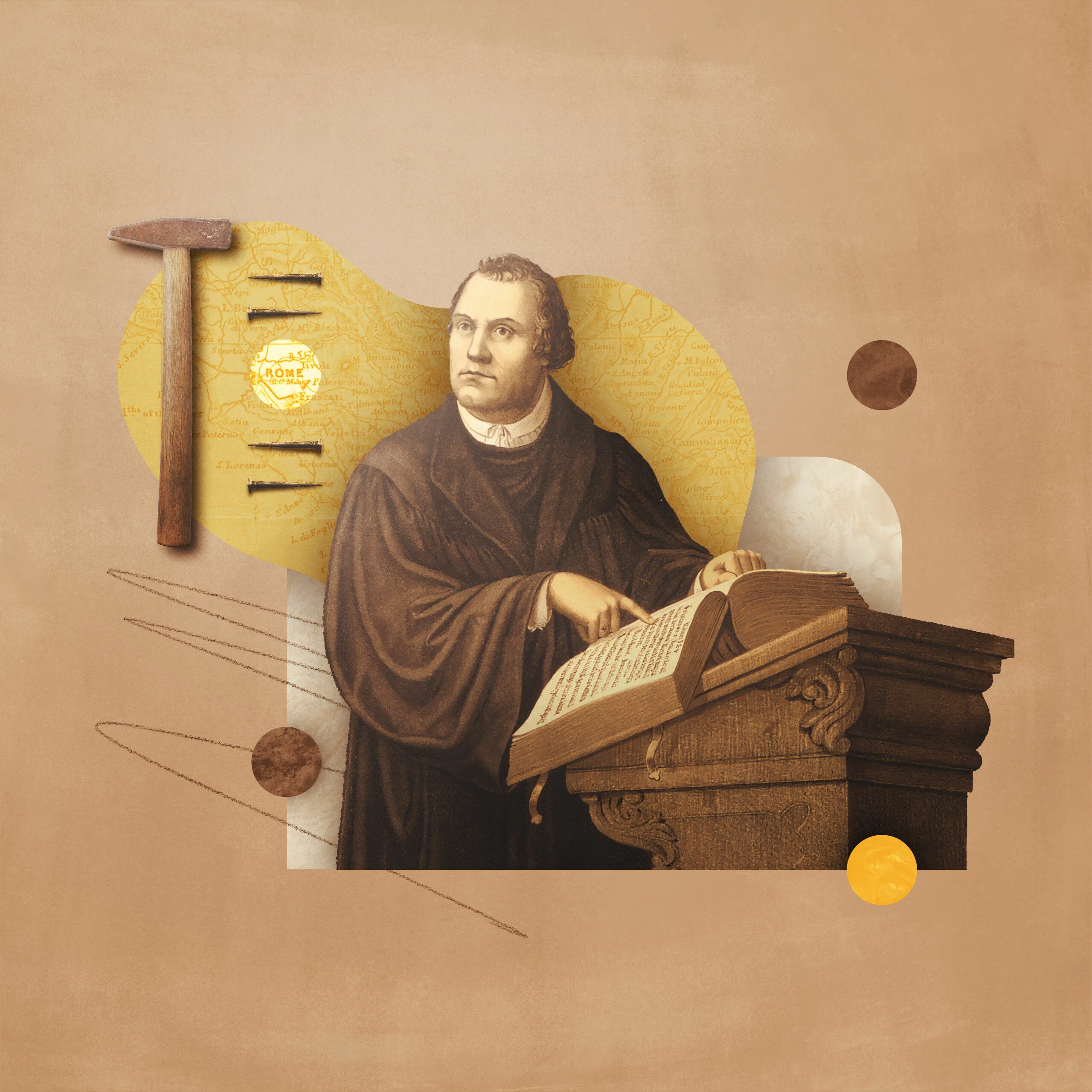What Was the Protestant Reformation?

To understand the Reformation and its lasting influence, we have to imagine a very different world from our own. For one thing, the choices we enjoy in the twenty-first-century West were nonexistent. Life was controlled by financial constraints, geography, ignorance, and family ties. And then there was the church. The freedom to choose one’s own church was unheard of because before the mid 1500s, the Roman Catholic Church was the dominant religious force. In fact, in many parts of the world, it was essentially illegal to be anything but Roman Catholic or to read anything that didn’t agree with Roman Catholic teaching. Rome insisted that it alone could interpret and explain the Bible.
Over many centuries, the Roman Catholic Church also added teachings by way of tradition that weren’t in the Bible. One example was their teaching on purgatory, a place where departed souls, even the devout, spent countless years being refined by fire from residual sin committed during their lives. However, living relatives and friends of the departed could buy indulgences, which purportedly reduced the time the person spent in purgatory. So, if your mother had just died and was suffering agony in purgatory, you could buy an early release for her by dropping some coins into a box (or so they promised). This placed enormous emotional pressure on families, most of whom were poor and couldn’t afford indulgences. And of course, the whole idea was fictional.
These and other abuses were occurring throughout Europe until a German monk named Martin Luther dared to question the church’s teaching and practice. He decided to stand up to the forces of Rome by calling the authorities out and challenging their right to ask for indulgences. He did this by nailing ninety-five arguments to the door of his local Castle Church in Wittenberg. We might say his posting went viral, and it produced a major backlash. But by then, the spark had been lit. To many of the common people, Luther was a hero who had articulated everything they wanted to say but felt they couldn’t.
Luther’s revolt extended beyond indulgences and paved the way for the creation of what we now know as the Protestant movement, which spread all over Europe. It was characterized by three important features that differed from Roman Catholicism.
1. There was a rediscovery of the Bible as the final authority by which God could be known.
Luther quickly set about translating the Bible into the ordinary German language. With the invention of the printing press, Bibles quickly became available for common people to read. Protestants not only encouraged the reading of Scripture in their own languages but also taught that Scripture was its own interpreter, without the need for the Roman Catholic Church to dictate what it meant.
The Bible was being understood because preachers were allowing it to speak for itself.
2. There was a rediscovery of what a simple faith meant.
The Roman Catholic Church taught that the only hope after death was the shortest possible time in purgatory. This could be achieved only if you obeyed their practices as devoutly as possible. Martin Luther, who started off as a monk, became deeply troubled by his continuous attempts to win God’s salvation by his own good works. But while reading the letter to the Romans, he was suddenly struck by the simplicity of the statement, “The just will live by faith” (Rom. 1:17). It dawned on him that, due to his sin, his salvation was never going to happen by keeping the church’s laws or by his attempts to keep God’s laws. Rather, God was offering forgiveness and peace as a gift to be received by faith alone in His Son who had died on the cross for his sins.
3. The Reformation brought about a return to simple Communion.
The Roman Catholic Church practiced the Mass, a ceremony in which the wafer was believed to be changed (or transubstantiated) into the body of Jesus. The Protestant movement rediscovered the simplicity of eating bread and drinking wine as pointing to the body and blood of Jesus. While there were varying views of how Christ is present in the Lord’s Supper among Protestants, they all rejected the view that the bread and wine substantially become the body and blood of Christ.
In rejecting the additional trappings of the Roman Catholic Church, the Reformers were not suggesting a free-for-all. On the contrary, they believed that the church was the context in which God’s Word was preached and people gathered for worship. But instead of church being a spectator event, in which ordinary people had to sit and watch priests and listen to choirs, they could now take part—by singing, listening to the Scriptures preached, and receiving the Lord’s Supper. Now, the Bible was being understood because preachers were allowing it to speak for itself. The people who were terrified beforehand of the prospect of thousands of years in purgatory were introduced to the gospel, where they could find instant forgiveness and assured peace with God.
In many of our churches today, we enjoy the simplicity of biblical worship, a Christ-centered gospel, and uncomplicated sacraments. These precious and simple blessings we often take for granted were not always accessible. They are a consequence of the courage of men like Martin Luther who found the joy of forgiveness not in the church’s impossible dictates, but by grace alone, through faith alone, in Christ alone, within the Bible alone, to the glory of God alone.
Editor’s Note: This article was originally published on October 30, 2024.

